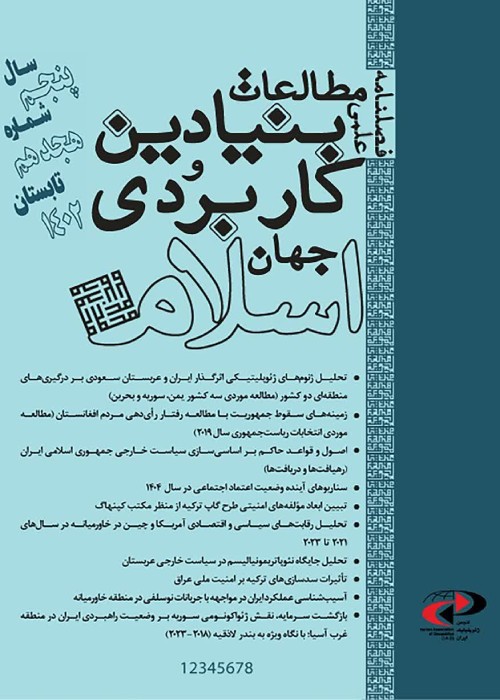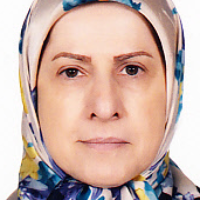Cultural Factors Affecting the Futures of Iran-Turkey Relations
In the recent years, a scientific look to the future and the attempt to obtain a scientific perspective of the future to make a strategic plan suited to the coming changes of the future have found a way to the academic circles, and this has let futures studies become an approved methodology among the researchers. Future studies helps decision-makers to get prepared to confront with the different scenarios and reduce the costs of decisions by giving a picture of factors affecting the future and a view of probable futures. So, the ability to identify the probable scenarios in the future relations of Iran with its neighboring countries can be one of the many applications of futures research, and the preface to that is the identification of the key factors affecting the future. Turkey is one of the most important neighbors of Iran. Iran and Turkey are two important and effective political players in the region. They have various geopolitical, geo-economic, and geo-cultural competencies that help them be supplementary partners for one another. Of the common features of Iran and Turkey is their alternate sovereignty over many West Asian countries throughout history. This has influenced the culture of those countries. But due to special features of this region, the political, security, and economic aspects of the relations between these two countries have been highly stressed, and cultural relations have been to some extent neglected. Therefore, the cultural relations of these two countries are not at a reasonable level, despite the presence of potential capacity.
The present study follows a future studies approach to find the answer to the question of what are the key cultural factors affecting the future of Iran-Turkey relations. This research is exploratory in nature, practical in purpose, mixed in data gathering, and correlational in data analysis. In the current research, first, effective cultural variables on the future relations of Iran and Turkey are identified. Then, based on the experts' opinions, factors and grounds that affect Iran-Turkey relations are determined. Variables whose impact is confirmed by experts will be cultural factors affecting the future of Iran-Turkey relations. This study will also examine the factors in terms of importance and uncertainty to grasp the key cultural factors affecting the future of Iran-Turkey relations. Experts in this research are grouped into two categories: executive and academic.
Cultural variables affecting Iran-Turkey relations were identified by examining written sources and interviewing experts. These variables are: Ethnic commonalities between Iran and Turkey, which considers the ethnic commonalities of Turks and Kurds in the two countries; ethnic differences between Iran and Turkey that indicates the amity/enmity patterns; historical-cultural commonalities in the Persian language which deals with the Turkish people interest and teaching Persian in Turkish universities; religious commonalities between Iran and Turkey, which refers to the two countries being Muslim and to Islam as a common religion; religious differences (Shia-Sunni) between Iran and Turkey are also discussed; common cultural customs (weddings, mourning, food culture, music, art, etc.) and cultural connections and exchanges (holding film, music, and book week-rituals) are also factors that affect Iran-Turkey relations. Variables like Pan-Turkism and the probability of Turkey supporting Pan-Turkic separatist groups in Iran, the relationship between Iran and the Alawites in Turkey, the national registration of Iranian cultural and scientific figures by Turkey, the competition for soft power in West Asia, the competition for soft power in Central Asia and the Caucasus, and Iran's relationship with Shiites and supporters of the Islamic Revolution in Turkey were also examined.
By distributing a questionnaire among 35 experts on Iran-Turkey relations and adopting the IPA analytical method, the factors whose importance and uncertainty were higher than the threshold value were identified. Except for the variable of national registration of Iranian cultural figures by Turkey whose validity was not confirmed, other variables were identified as cultural factors affecting the future of Iran-Turkey relations. Finally, with the identification of the threshold value, the five factors of ethnic commonalities between Iran and Turkey, Pan-Turkism and the probability of Turkish support for Pan-Turkish movements in Iran, competitions for soft power in West Asia and Central Asia and the Caucasus, as well as Iran's relationship with Shiites and supporters of the Islamic Revolution in Turkey were identified as key cultural factors affecting the future of Iran-Turkey relations.
- حق عضویت دریافتی صرف حمایت از نشریات عضو و نگهداری، تکمیل و توسعه مگیران میشود.
- پرداخت حق اشتراک و دانلود مقالات اجازه بازنشر آن در سایر رسانههای چاپی و دیجیتال را به کاربر نمیدهد.




